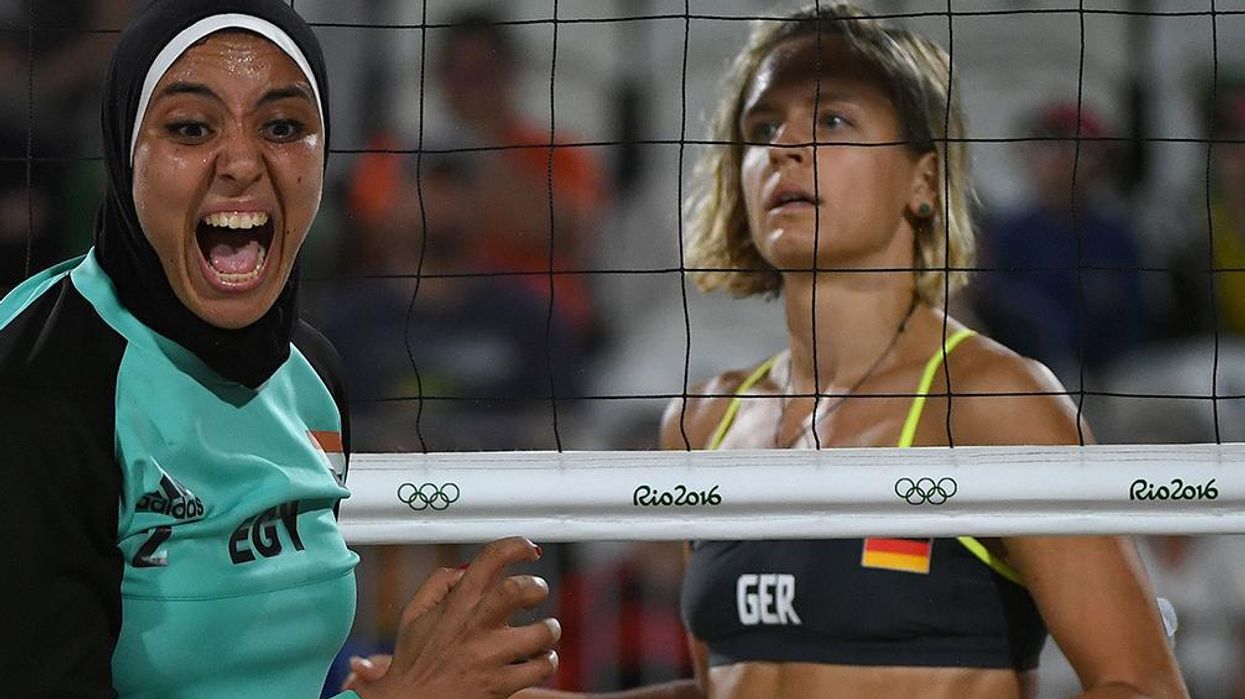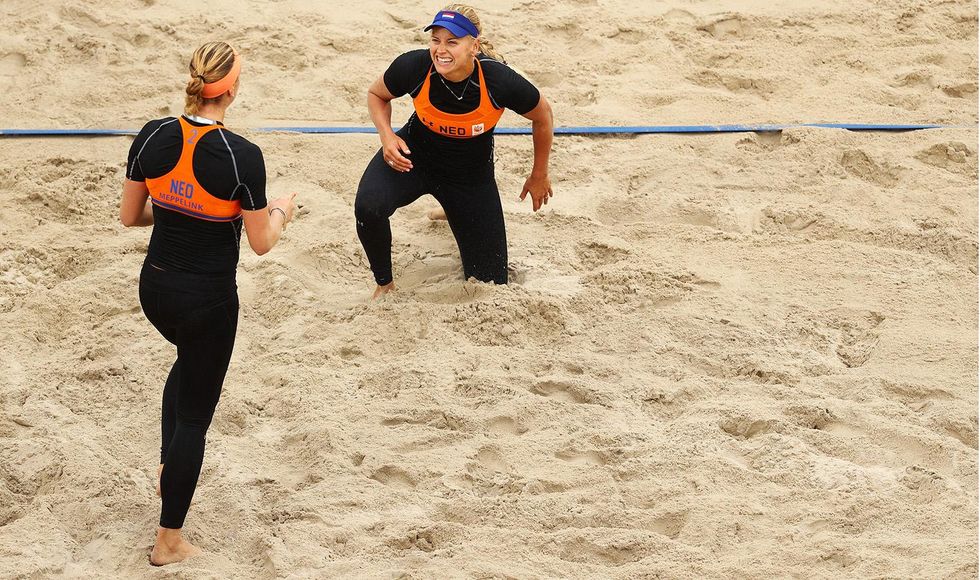Sport
Aimee Meade
Aug 11, 2016

The pictures of Egypt's women's beach volleyball team playing Germany were published all across the media and internet earlier this week, declaring it a "culture clash" or "culture divide".
Pictured was Doaa Elghosbashy wearing a hijab, long sleeves and leggings while competing against Kira Walkenhorst in her two-piece bikini.
Commentators on social media were quick to call this a "clash", but was it? Or was it simply two women playing a sport they love in a sports kit they chose?
Beach volleyball has long been associated with skimpy outfits and it wasn't until London 2012 that female athletes had the option to wear less revealing uniforms. The International Volleyball Federation allowed players to wear shorts and sleeved tops in addition to body suits and bikinis to respect cultural beliefs of various countries. In previous competitions, Olympic players' uniforms had to be less than 6 inches wide.
Will Westwood, Competitions Officer at Volleyball England, told indy100:
For our beach competitions, we follow the regulations laid out by the federation with adaptions for medical or religious reason if required.
The change made in 2012 essentially freed athletes to wear what they want - so for Walkenhorst that is a bikini and for Elghosbashy that is a bodysuit and a hijab. Elgohasbashy told the Associated Press:
I have worn the hijab for 10 years.
It doesn't keep me away from the things I love to do, and beach volleyball is one of them.
The bodysuits aren't just worn by athletes for religious reasons, most wear them during practice or when the temperatures are lower. The Dutch women's team were pictured wearing the kit on Wednesday:
Having the right uniform or kit can have a powerful effect on performance and psyche. According to Andy Lane, Professor of Sport and Learning at the University of Wolverhampton: "many players have strong beliefs or superstitions that wearing certain clothing or doing things helps performance".
He told us:
The act of being given the national kit, something that cannot be bought, is exclusive and highly wanted as a junior athlete should have a powerful effect on the psyche.
Having a positive unified team is key to building identity and also important to developing a sense of collective success.
More: The most outrageously sexist moments of the Rio Olympics so far
More: A map of the countries where women are banned from wearing the veil
Top 100
The Conversation (0)














